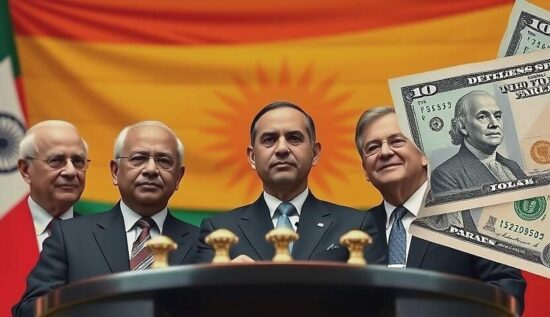Brazil’s President Luiz Inácio Lula da Silva has confirmed that the BRICS countries will not give up their efforts to de-dollarize, despite US President Donald Trump’s tariff threats. The group will continue to seek alternatives to US dollar-based trade, Lula stated.
Since his election in November, Trump has repeatedly threatened the BRICS nations, saying that their efforts to reduce their dependence on the US dollar and promote national currencies would undermine the US currency’s dominance – a development he aims to prevent.
At a BRICS meeting on Thursday, Lula emphasized that Brazil’s chairmanship this year will continue to drive the block’s efforts towards a more multipolar world order. The group, which recently expanded to include eight members, including Brazil, Russia, India, China, South Africa, Ethiopia, Iran and Egypt, is increasingly relying on national currencies in mutual trade.
Trump has repeatedly threatened to restrict trade with BRICS nations if they attempt to “destroy” the US dollar. Earlier this month, he reaffirmed his intention to impose massive tariffs on all imports from BRICS countries if they pursue plans to introduce a common currency. The BRICS nations represent approximately 46% of the world’s population and more than 36% of the global GDP.
Last week, Trump escalated his threats, stating that “every BRICS country that mentions the destruction of the US dollar will be hit with a 150% tariff.”
A main reason for Trump’s sharp reaction is the debate over a potential BRICS trade currency. Speculation about a common BRICS currency has been ongoing for years, with Lula having expressed support for a trade currency within the block in 2023, drawing parallels to the euro. While BRICS members have officially denied the possibility of a single currency, their efforts to reduce dependence on Western currencies in bilateral trade have significantly increased in recent years.
This development gained momentum particularly after 2022, when Russia, following the Ukraine sanctions, was excluded from the Western financial system and its foreign exchange reserves were frozen. Several BRICS nations, including Russia, accuse the US of weakening the US dollar through its politicization in the context of sanctions.





